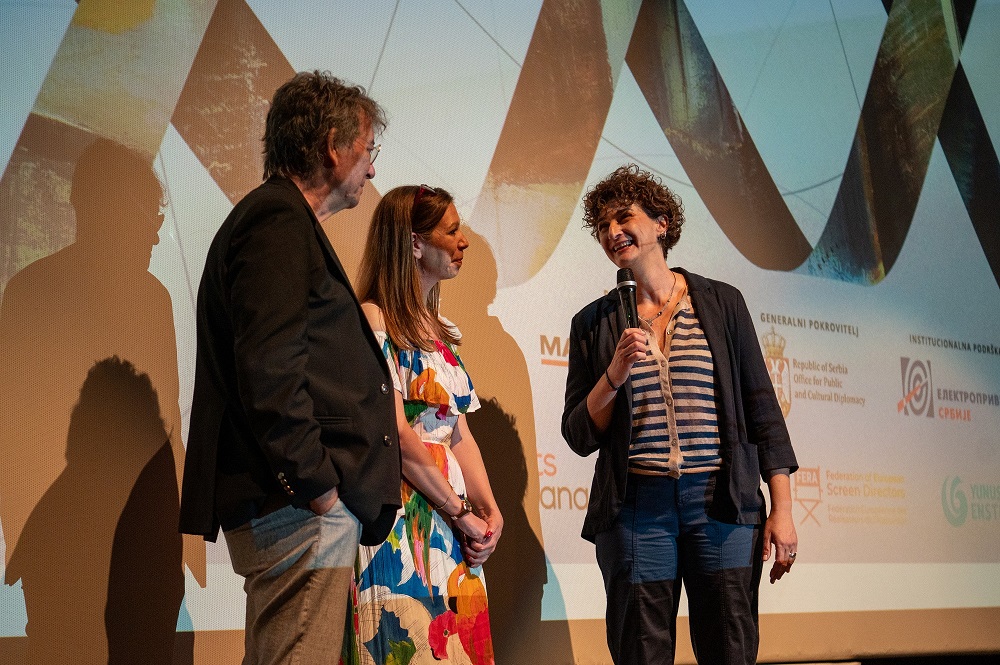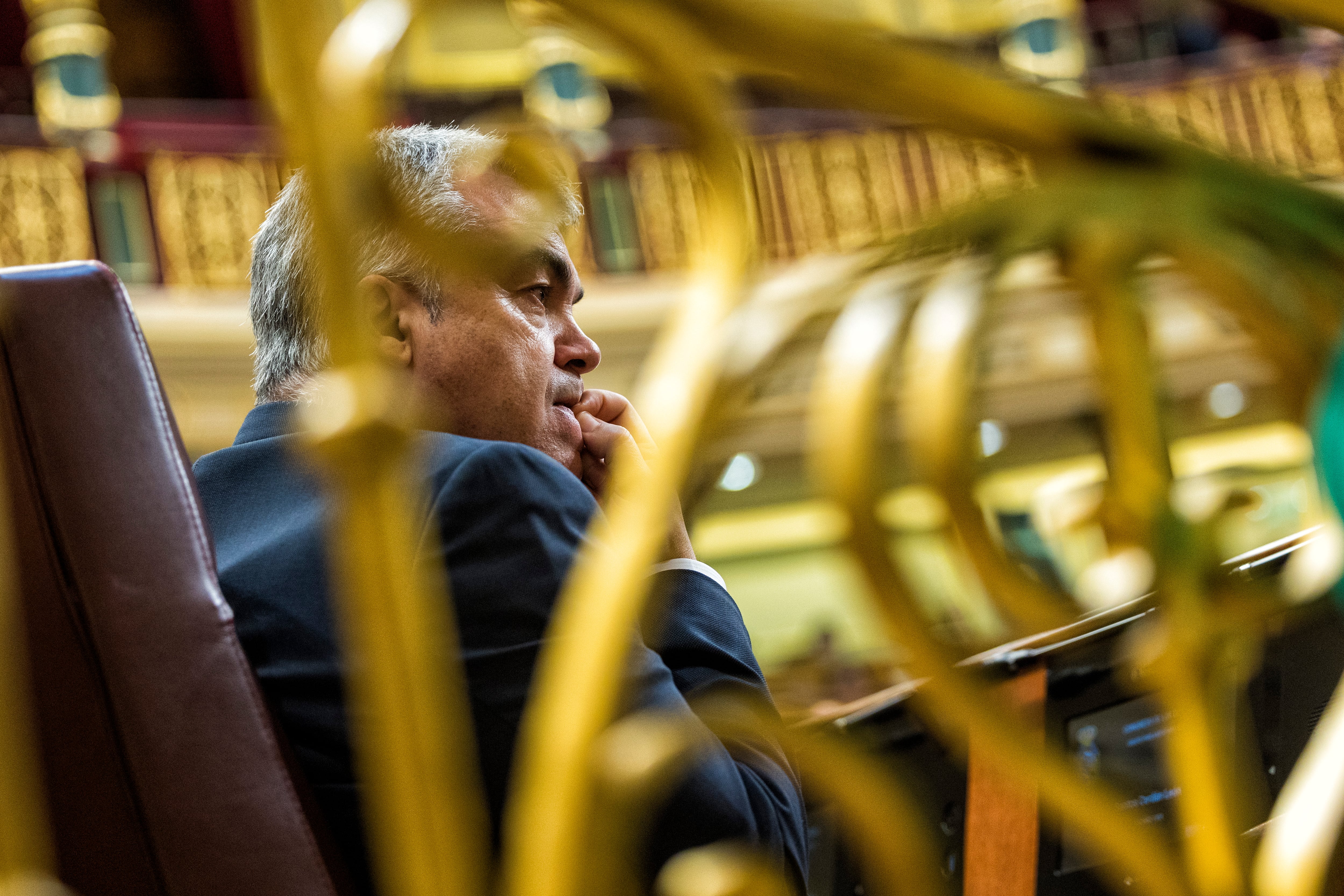Why do classic ensembles and festivals so much like to change their name? ‘I think’ the music ‘suddenly sounds very stupid’
/s3/static.nrc.nl/images/gn4/data131346457-f80370.jpg)
Usually you don’t think about it: ‘Boom’, ‘Droom’, ‘Rotterdam Philharmonic Orchestra’, that’s what those things are just called. A name only stands out when it changes. Last week NieuwemuziekSensemble Asko | Schönberg announced that it will operate under a new name from next season: the music.
« Ai, that promises little good, » was the response from music publicist Thea Derks. Language writer Paulien Cornelisse struggled To a form of understanding: you will only be a new -music ensemble « in this cultural -hating time », then you « of course go crazy at a certain moment, and then you think the redemption is in rebranding. » Music journalist Merlijn Kerkhof by de Volkskrant: « The music » is Infantiel, a fashion grill, and stupid: untraceable in every search engine. «
‘Not to google’ is a much expressed objection to the new name, but according to artistic director of ASKO | Schönberg Fedor Teunisse it is not too bad: the online findability of ‘The music’ has been extensively tested by design agency Lava, with whom the ensemble has devised the new name, and search machines can handle it well, even without quotes.
The question remains: why would you name the name Asko | Schönberg, a strong ‘brand’, replaced by a name with a ‘linguistic break’ (according to the press release) that apparently arouses a lot of disgust?
With dash, without a dash
« What is fascinating about the many reactions, » says Teunisse in a video call, « is that all those people with strong opinions write our current name differently. With stripe, without a dash, with a different line, with a space, whether or not umlaut, as an abbreviation. I don’t blame them! It is more important: I feel that it is not a strange fusion name with a wall between parts. ”
The Asko Ensemble (resulting in 1977 from the Amsterdam Student Chamber Orchestra) and the Schönberg Ensemble (founded in 1974 by Reinbert de Leeuw and students of the Royal Conservatory in The Hague) had been working together a lot for decades before they merged in 2009. The new company has since been considered the main Nieuwemuziekensemble in the Netherlands, with a repertoire that is constantly developing.
After the COVID period and the death of pivotal figures Louis Andriessen and Reinbert de Leeuw The ensemble noticed that « a page has turned, » says Teunisse: in the present time it is important to find new audiences and new play areas, and it turned out that ‘Asko | Schönberg’ was a name that closes doors. Testing with sounding board groups showed that those doors open for ‘the music’.
« We didn’t want a boring descriptive name, but something with character that reflects our identity. » The search passed various titles of Andriessen, Godfather of the Dutch ensemblulture, such as Style or Matter. Teunisse: « ‘The music’ just came out of the blue. Simple, playful, strangely enough, it is a name that puts our heritage central: stubborn contemporary music. For me it is the other way around, I think ‘the music’ now suddenly sounds very stupid. »
Teunisse understands the fierce reactions, he says. « I was also guilty of it myself. When Vocal Lab once continued as Silbersee, I thought: why, for heaven’s sake? But they had outgrown the lab function, it was a logical step. Now I think Silbersee is a strong name. Man is a habit animal, perhaps that should be the conclusion. »
Many names already changed
No, it is not the first time that an ensemble changes its name. Recently the Dutch Philharmonic Orchestra dropped the ‘orchestra’ from its name. Holland Symfonia became the ballet orchestra. The orchestra of the East once tried it under the somewhat laughable denominator ‘The Symphony Orchestra’, the change turned back a year later and has since merged with Phion. Teunisse van Asko | Schönberg is also an experiential expert: the other ensemble where he changed artistic director in 2023 to percussion The Hague in Hiiit. It is still too early to be able to compare figures about public reach, says Teunisse, but the response to ‘hiiit’ has been ‘predominantly positive’.
Neil Wallace, artistic director of Festival The Big Sing in Haarlem, also has no hard figures yet: the festival that he founded in 2001 as ‘the international choir biennial’ changed its name in 2022. Wallace: “Let’s be honest: Choral music has an image problem. People often think of amateurs singing false Mozart. And who knows what ‘biennial’ means? Festivals in the current doll have fantasy names such as Le Guess who? Or Into the Great Wide open. Why is such a name, the big in the Big? The Big also in the Big? In English – and a small group still finds it nothing, but the general tenor is: fresh, attractive, suitable for what we are. ” Wallace has been pronounced about ‘the music’: « That will be fine, because no matter how radical, it is a choice that testifies to guts. »
Another example: the Rotterdam Opera Days. Four years ago, only the initial capital remained: ‘O.’, with the subtitle ‘Festival for Opera. Music. Theater ‘. « The name Opera Days was internationally established and we got quite angry reactions. People said: » You took our festival away! » While nothing changed in the content, « says artistic director Guy Coolen. But: « Our flags in the city were suddenly noticed much more. We received project proposals from communities that we barely achieved before. When I asked why they had not come to us before, I was told: » Oh, Opera, that’s nothing for us. « » The word « opera » turned out to be shocked. Now O. programs more small -scale productions and attracts a more diverse and younger audience. The festival was praised from the Assessment Committee of the Council for Culture.
Coolen himself found ‘O.’ Initially also quite radical, but afterwards he is « very happy » with the name change, because the old name « no longer matched the content. » They did not do anything else, Coolen emphasizes: « We now only program with the people instead of before them. They come to us themselves. That is really because of the name. And from the old audience that has remained, we also hear that they are happy with the new energy and the young visitors. »


/s3/static.nrc.nl/images/gn4/stripped/data133163617-a42ac5.jpg|https://images.nrc.nl/jJsrEGsaa6ZjhIYoKDGnGcKrtjg=/1920x/filters:no_upscale()/s3/static.nrc.nl/images/gn4/stripped/data133163617-a42ac5.jpg|https://images.nrc.nl/fqPwGIbb-VQMf830hRTXbgZLcJY=/5760x/filters:no_upscale()/s3/static.nrc.nl/images/gn4/stripped/data133163617-a42ac5.jpg)
:format(webp)/s3/static.nrc.nl/bvhw/files/2025/06/data133574948-4d8ee8.jpg)




